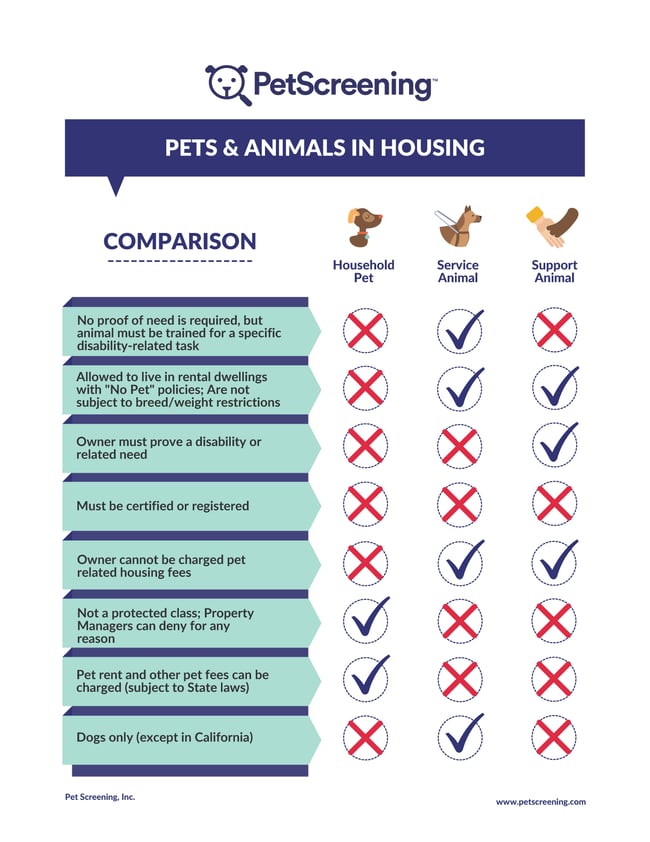The Value of Being Pet-Friendly
It’s as undeniable as the law of gravity or the sun rising in the east: Americans love their pets.
And, as panelists in AIM’s recent “Pets: Love, Marketing and Lifetime Value” webinar showed, pet-friendly apartment operators are in a prime position to capture extra revenue and create communities full of loyal residents.
The Management Group has no breed restrictions or weight limits for dogs, charges no monthly pet rent and even encourages prospects to bring their pets along when they tour. The company has experienced significant benefits as a result, said Jamin Harkness, executive vice president at The Management Group.
“When we looked at our last four months of renewals, 80% of our residents who have pets renewed, and I strongly believe that’s because of our pet-friendly policies,” Harkness said. “We really believe that when we are very welcoming to pets, more people renew and that hedges our vacancy loss. I’m not big into fees, fees, fees – I’d rather just keep people longer.”
Angie Lombardi, vice president of marketing at The Franklin Johnston Group, agreed that certain residents can feel a deep loyalty to communities that have fewer dog-related restrictions.
“Owners [of breeds that are frequently not allowed at properties] feel a camaraderie with each other because they’re like, ‘Oh, we’re the bad kids. We can’t live in certain places because of our dog,’” Lombardi said. “I’ve had property managers tell me that [allowing typically banned dogs] gives these owners a sense of community. They want to stay because they can stay with their pets and because they form these bonds with others in the community. It’s very valuable.”
In addition, banning certain types of dogs can cost apartment communities significant money, according to John Bradford, the founder and CEO of PetScreening.com. The company manages assistance animal accommodation requests for apartment operators and also screens the pets of prospective residents to assess the risk they pose to an apartment community. Communities can adjust pet rent and fees based on the screening results.
For instance, the owner of a banned breed – such as a pit bull – may try to claim his dog is an emotional support animal, obtain the proper paperwork online and file an assistance animal accommodation request. In fact, PetScreening’s data shows that 20 percent of emotional support animal requests are for what most communities would consider dangerous breeds. Even more intriguing is that 48 percent of emotional support animal requests are for large breeds. The data seemingly indicates that pet owners might be seeking emotional support animal status to get around breed and weight restrictions, not to avoid fees. Most pet owners have acknowledged in studies that they are willing to pay pet rent and pet deposits. Apartment operators can’t ban an assistance animal, and they also can’t charge pet-related fees for them.
Unfortunately, validating these requests can be a cumbersome and tricky process for community associates, and properties approve too many illegitimate requests, according to Bradford.
“We have reviewed over 31,000 reasonable accommodation requests, and 60% of those requests did not meet [Fair Housing and HUD] guidelines,” Bradford said. “If we use a monthly pet rent of $30 and a non-refundable fee of $300 per pet and apply that to the 60% that did not meet the guidelines, that’s about $13 million or $14 million of reclaimed pet revenue. If you know how to review these requests, it will help in a big way.”
Both Harkness and Lombardi agreed that outsourcing the screening of accommodation requests creates efficiencies for onsite teams.
“You have to think about the time it’s taking our site teams to do this when they could be focusing on resident retention or getting more prospects in the door and having a really good customer service experience,” Lombardi said.
The panelists also discussed emerging pet-related ancillary revenue opportunities, such as onsite daycare facilities and dog-park rentals.
Here is the replay:


%20(1).png)

